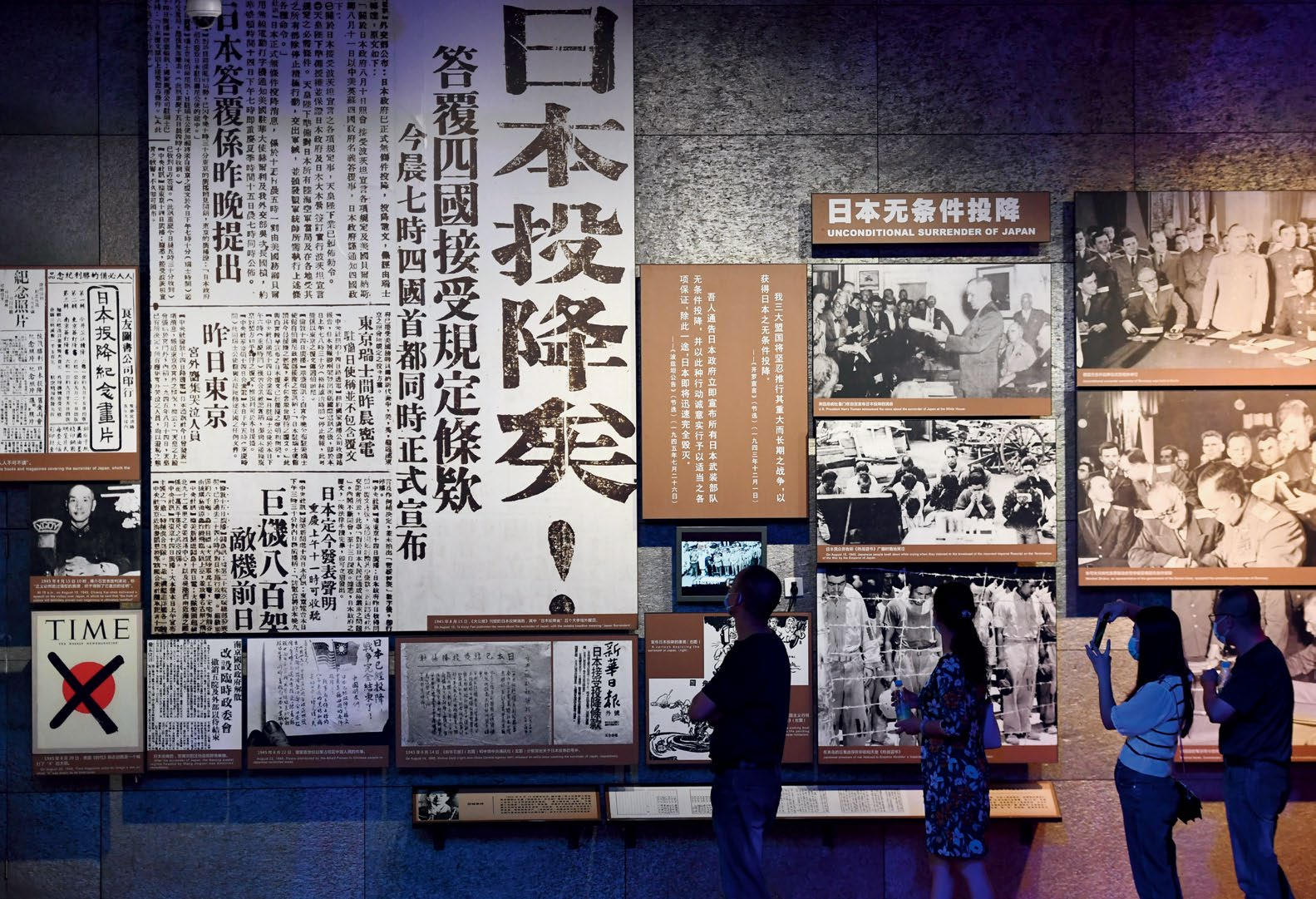Seventy-eight years ago, the Chinese people, together with many other nations around the world, defeated Japanese imperialist aggressors. When talking about the victory of the Chinese People's War of Resistance Against Japanese Aggression (1931–1945), Chinese President Xi Jinping pointed out that "This great victory is a historical turning point for the Chinese nation to go from a deep crisis to a great rejuvenation since modern times; it is also an important component of the victory of the World Anti-fascist War. It is a victory for the Chinese people and also a victory for the people of the whole world."

On September 3, 2022, people visit the Memorial Hall of the Victims in Nanjing Massacre by Japanese Invaders in Nanjing, east China's Jiangsu Province. The hall was built to commemorate the 300,000 Chinese slaughtered in Nanjing by the Japanese.
In the War of Resistance Against Japanese Aggression, the Chinese people showed the world their indomitable national spirit and their willingness to die rather than surrender. Today, as we celebrate China's victory in the War of Resistance Against Japanese Aggression and the World Anti-fascist War, we reassert our determination to condemn fascist brutality not for the sake of any continuing hatred but rather to awaken the yearning people feel for peace, and their determination to learn from history, to face the future, and to cherish and maintain peace.
Everyone has responsibility for rise and fall of world
On September 18, 1931, the Japanese Kwantung Army in China shelled Shenyang, the capital city of Liaoning Province. This is known in history as the September 18th Incident. Soon after this act of military aggression, the Japanese moved to occupy the three northeastern provinces of China — Liaoning, Jilin and Heilongjiang. This was the "most dangerous time for the Chinese nation." The Communist Party of China (CPC) quickly stepped to the vanguard of the coming struggle, raising the flag of armed resistance against Japan.
On September 20, the CPC Central Committee issued a declaration to call for the Chinese people to rise up and "oppose the Japanese imperialist occupation of the three northeastern provinces!" The CPC Manchuria Provincial Committee, the first CPC underground organization in northeast China, instructed local Party organizations to rise up against the Japanese invaders. The CPC Central Committee sent Zhou Baozhong (1902–1964) and Zhao Yiman (1905–1936) to northeast China to reinforce CPC organizations there. During this period, people of the Manchu, Korean, Mongolian, Xibe, Hui and other ethnic minorities in the northeast region organized various forms of anti-Japanese volunteer troops.
Unlike the CPC, however, the ruling Kuomintang (KMT) government adopted a completely opposite policy of "pacifying the interior before resisting foreign aggression." KMT leaders telegraphed the Northeast Army asking them to "absolutely embrace non-resistance."

